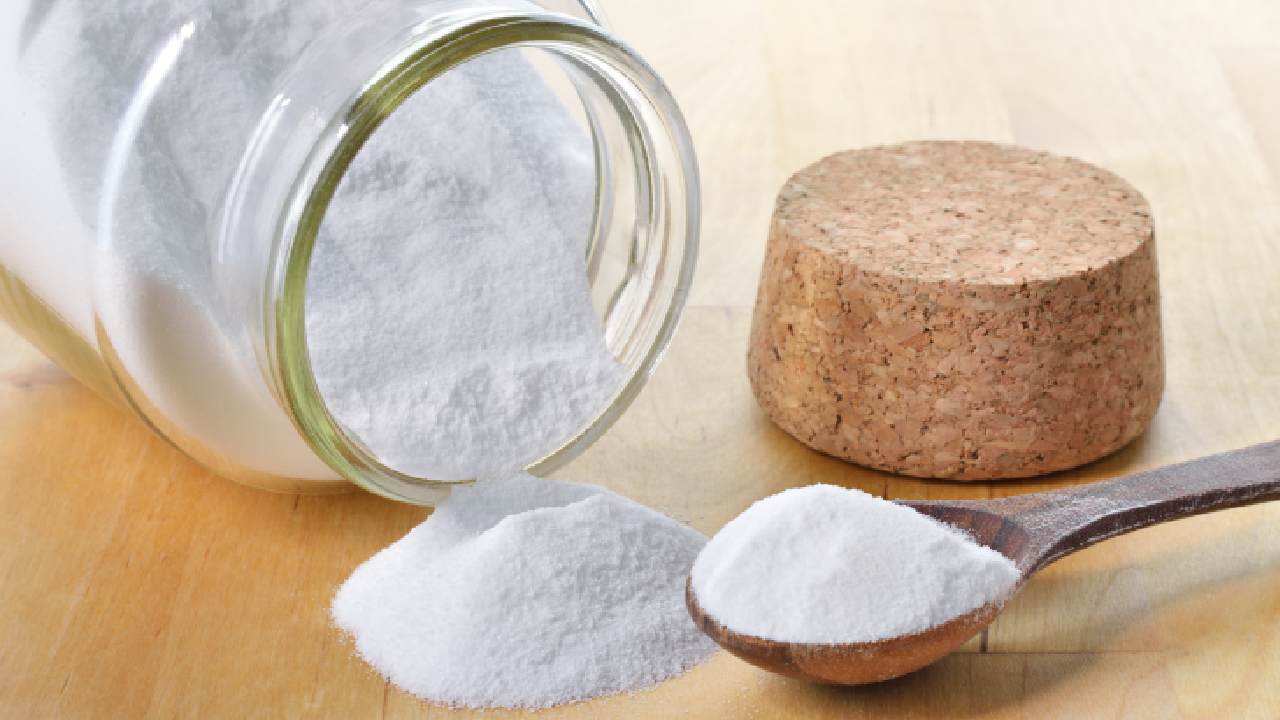10 ways to use bicarb soda in the garden

Bicarb soda is great for around the house, but did you know it has may uses in the garden too? Here are 10 ways to use bicarb soda in the garden
1. Control powdery mildew
Mix one tablespoon of bicarb soda, one tablespoon of vegetable oil, one tablespoon of liquid dishwashing soap and four litres of water together. Pour mixture into spray bottle and spray on plants weekly. Make sure to check for signs of burning as some plants are sensitive.
2. Stop cabbage worms
If pesky cabbage worms are nibbling your vegetables, use this natural bicarb soda mixture to get rid of them once and for all. Mix together equal parts bicarb soda and plain flour. Sprinkle over plants.
3. Sweeten tomatoes
It is believed that a sprinkle of bicarb soda on the soil around tomato plants will sweeten tomatoes. Bicarb soda helps lower the acid levels in soil, which makes tomatoes sweeter.
4. Test soil PH levels
Before you plant your garden, scoop some soil into a small container and wet it with some water. Sprinkle bicarb soda on top of it. If the bicarb soda bubbles, the soil is most likely too acidic.
5. Kill slugs
If you have slug problem in the garden, sprinkle bicarbonate soda directly on them. This will dry them out.
6. Discourage weeds
To prevent weeds from growing in the cracks of pavement or garden stones, pour a generous amount of bicarb soda into the cracks. This will kill off small weeds and discourage new weeds from growing. Do this every couple months.
7. Remove crabgrass
Crabgrass is one of the worst lawn weeds in the world and should be removed immediately. To kill crabgrass, spray with water and sprinkle bicarb soda on it. This will kill crabgrass in a few days. Be careful not to sprinkle bicarb soda on any other plants or grass though.
8. Keep flowers fresh
To prolong the life of a fresh bouquet of flowers, fill vase with water and mix in one teaspoon of bicarb soda.
9. Treat black spot fungus
Mix four teaspoon of bicarb soda with four litres of water. Spray on infected roses at the first sign of the disease.
10. Make a safe organic pesticide
This non-toxic pesticide will kill insects harmful to plants, like aphids, without damaging the environment. Mix one tablespoon of bicarb soda, ½ tablespoon of oil and two litres of water. Spray on plants every few day until problem insects disappear.
